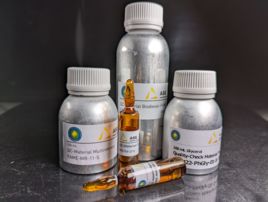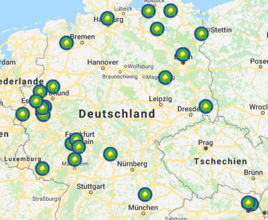National Implementation of Biomass Sustainability Regulations
Industry deplores unresolved open issues
A technical seminar organised by Union zur Förderung von Oel- und Proteinpflanzen e. V. (UFOP) jointly with Arbeitsgemeinschaft Qualitätsmanagement Biodiesel e. V. (AGQM) on 20&21 January 2010 received an unusually positive feedback. More than 120 representatives, most of them from the oilseed processing segment as well as the biodiesel and mineral oil industry, were welcomed by AGQM General Manager Dieter Bockey. The seminar focused on the current obligations and documentation requirements in connection with the “Biofuels” Biomass Sustainability Ordinance, in addition to recent resolutions amending the energy legislation.
A particular focus at the seminar was on explanations concerning the implementation of the biomass sustainability regulations by the affected businesses. The competent authority, Federal Agency Agriculture and Food (Bundesanstalt für Landwirtschaft und Ernährung - BLE), had sent the responsible and competent Head of Division, Mr. Matthias Nickel, and other experts. At the beginning of the seminar, the team of speakers explained the documentation requirements, from agricultural trade as the so called first interface to the biofuel producer as last interface starting and the subsequent registration with the main customs offices or the biofuel quota unit (responsible for the registration of the quota commitment).
A barrage of questions concerning the terminology of the regulations, e.g., what is a permanent establishment, the delimitation of the registration of agricultural enterprises for which a self-declaration is sufficient, and the first acquirer, reflected the discussion of practical matters at the seminar. However, it was also seen that there was more need for clarification of some definitions and law terms. This also related to the presented EDP-assisted transfer of data to the web-based platform of BLE.
Participants agreed that the BLE had undertaken extraordinary efforts to provide all administrative preconditions for the prompt and timely implementation of the “Biofuel” Biomass Sustainability Ordinance, including the required approval of the certification systems and control bodies. Demands were for reasonable transitional provisions, for example, for processed biofuel quantities that cannot be marketed by 30 June 2010, the deadline.
Industry demands postponement
As seen by the organisers, it should be accepted that the affected parties, from agricultural trade to oilseed processors and the biofuel and mineral oil industry, have made great efforts to cope with the additional requirements of implementing the biomass sustainability regulations on enterprise level and are ready to establish the required documentation structures and the basis for introducing a mass accounting system.
Considering the fact that these enterprises require the certification by a body accredited by the BLE if they want to market biofuels from 1 July 2010, some 3,000 enterprises believe that the deadline cannot be met, and pressed for postponement. Postponing the deadline to 4 December 2010, the date set by the European Renewable Energies Directive, would make it possible to extend the special regulation for providing proof of harvest by one year. If this was done, agricultural trade, in particular, could take advantage of this and inform farmers on the requirement of a self-statement with a reasonable time lead. To date, only a certification system with temporary approval and a few control bodies exist, which cannot cope with the forthcoming flood of certification applications in the required time.
As a consequence of this, industry representatives were uncertain as to plans regarding the next harvest. They are afraid that the flows of goods might be obstructed in the home market, within Europe and also internationally.





